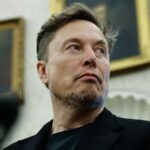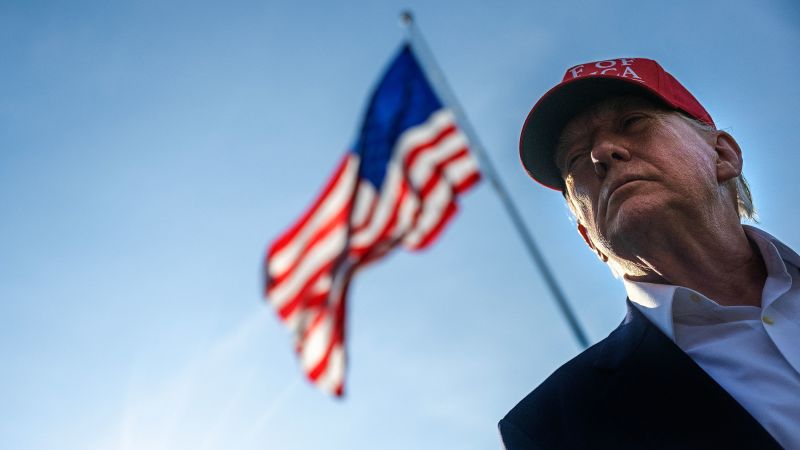Politics isn’t rocket science. If it were, former President Donald Trump might be more concerned about his renewed conflict with Elon Musk. Despite Musk’s renowned ability to disrupt industries like space travel and electric vehicles, his political maneuvers have yet to shake the Republican Party’s foundations. Musk’s past role as head of the Department of Government Efficiency during Trump’s administration is now just a memory, as tensions rise over Trump’s recent “big, beautiful bill,” which Musk vehemently opposes.
Musk’s discontent with the bill, which passed the Senate on Tuesday, has led him to threaten primary challenges against every GOP lawmaker who supported it, and even to propose forming a new political party. While Musk commands significant resources, including a vast fortune that can influence political campaigns and issues, his threats may not resonate as strongly within the GOP, where Trump remains a dominant force.
Financial Clout vs. Political Influence
Musk’s financial prowess is undeniable. He reportedly contributed nearly $300 million to the 2024 election, benefiting Trump significantly. As the owner of X, Musk has the power to mobilize online support or criticism, yet he has been cautious not to target Trump directly over the controversial bill. Despite his influence in technology and space exploration, Musk’s political acumen and base within the GOP remain questionable.
The chainsaw Musk wielded at the Conservative Political Action Conference symbolized his intent to cut government costs. However, it now serves as a metaphor for the severed ties with Trump over the MAGA megabill. Once, Musk’s alliance with Trump seemed mutually beneficial, with Trump even promoting Tesla from the White House lawn. But their fallout could expose Musk’s business empire to potential retaliation from a vengeful Trump administration.
The Trump Factor
Trump’s warning that “DOGE is the monster that might have to go back and eat Elon” underscores the deep rift between the two. This statement also highlights the extraordinary nature of Trump’s presidency, where threats against private citizens have become almost routine. Musk’s association with Trump has also alienated some of his customer base, particularly in Europe, where his companies’ market value has suffered.
Musk’s foray into electoral politics, aside from his alliance with Trump, has been less successful. His support for a conservative candidate in a Wisconsin Supreme Court race resulted in a decisive loss, suggesting that money isn’t always the decisive factor in American politics.
Trump’s Unyielding Grip on the GOP
The greatest obstacle to Musk’s political ambitions is Trump’s overwhelming influence within the GOP. For over a decade, Trump has been the party’s most significant figure, shaping its direction and maintaining a strong bond with its base. According to Lee Carter, a strategist and pollster, “Donald Trump is the one that has the huge following,” while Musk’s influence, though beneficial, was never central.
Musk, a recent convert to Trumpism, saw his influence peak during the early months of the new administration. However, his break from Trump revealed that the power within the MAGA movement is primarily derived from its leader. Vice President JD Vance’s choice to side with Trump over Musk during their fallout illustrates this dynamic.
Musk’s Political Base: A Question Mark
The critical question remains whether Musk has his own political base. Polls showed Musk and Trump had comparable support among Republicans before their fallout, but Musk’s broader appeal beyond the tech world is uncertain. Aligning with the GOP’s anti-debt faction, Musk seems a natural ally for libertarians like Sen. Rand Paul. However, history shows that fiscal conservatism alone is not a reliable path to political power.
Musk’s support for Kentucky Rep. Thomas Massie, who opposed the president’s bill, could be significant. Yet, translating his wealth into national political influence would require challenging Trump-backed candidates—an arduous task given Trump’s unparalleled status within the GOP.
Musk’s ambitions include forming the “America Party” if the spending bill passes, aiming to provide an alternative to the current bipartisan system. However, creating a third political force would require dismantling entrenched voter loyalties. Musk’s best strategy may be to wait for a post-Trump political landscape, where his vision might find more fertile ground.
Reflecting on historical parallels, Ross Perot’s 1992 campaign, which garnered 19% of the vote without winning a single state, shows that third-party efforts can impact elections. However, Musk, a naturalized citizen, cannot run for president, necessitating a surrogate to lead any new political movement.
Even Trump once admired Musk’s technological achievements, famously remarking at a rally, “Did you see the way that sucker landed today?” But those days of mutual admiration are over. A senior White House official recently told CNN, “No one really cares what he says anymore,” encapsulating Musk’s current political standing.
About The Author
 Elon Musk’s Political Engagements Threaten Tesla’s Stability
Elon Musk’s Political Engagements Threaten Tesla’s Stability Remembering Pauline Catherine Stanton: A Life of Dedication and Love
Remembering Pauline Catherine Stanton: A Life of Dedication and Love New World Map Reveals Marine Mollusks Shaped by Ancient Ocean Currents
New World Map Reveals Marine Mollusks Shaped by Ancient Ocean Currents Chicago Suburb to Acquire Pope Leo XIV’s Childhood Home, Sparking Debate
Chicago Suburb to Acquire Pope Leo XIV’s Childhood Home, Sparking Debate Impact of ChatGPT on Student Learning: A Double-Edged Sword?
Impact of ChatGPT on Student Learning: A Double-Edged Sword?